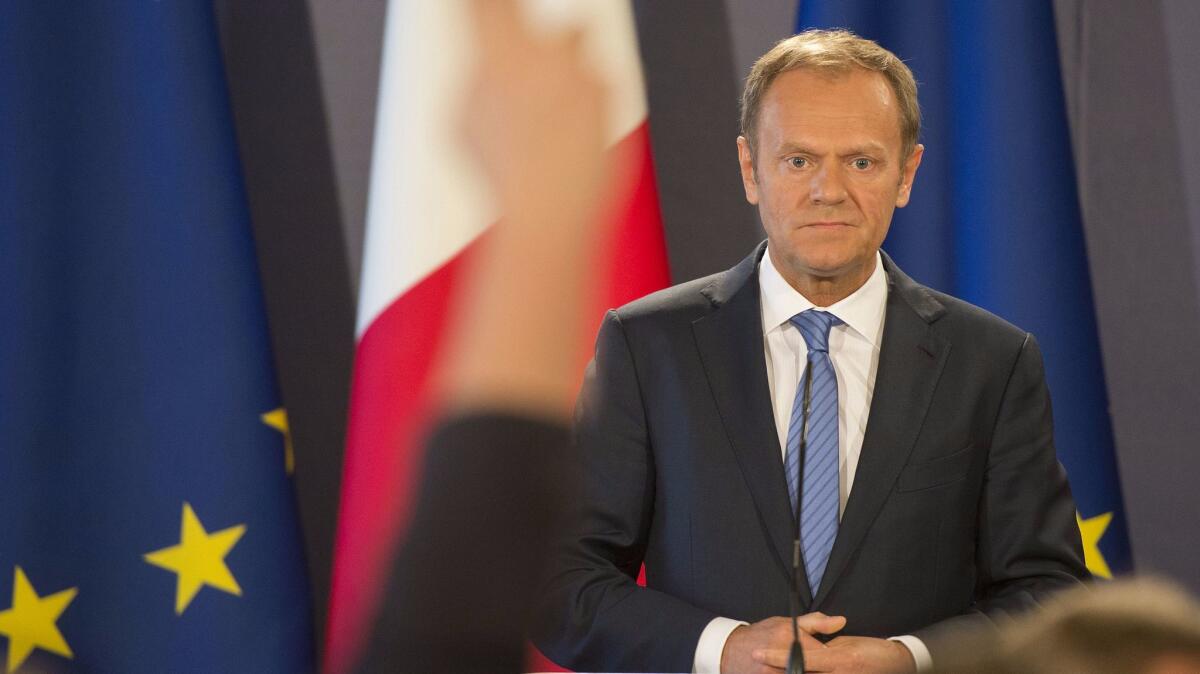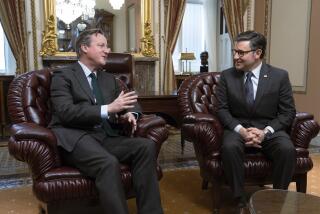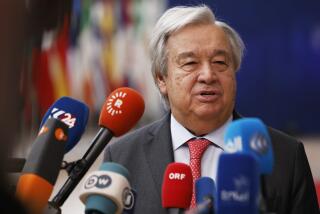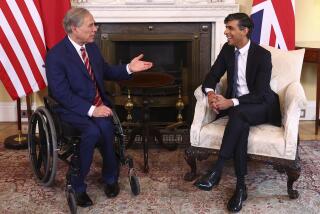EU chief to Britain: We won’t punish you in exit talks; ‘Brexit’ is ‘punitive enough’

The European Union softened its public stance on Britain’s exit from the bloc Friday, with European Council President Donald Tusk signaling some flexibility on allowing talks on a new relationship before the divorce proceedings are complete.
Draft guidelines obtained by the Associated Press say that the EU and Britain must first “settle the disentanglement” of Britain from the bloc. But once there is a tentative consensus on reciprocal treatment of citizens in each other’s nations, budget commitments, legal clarity for companies working in Britain and a solution on the Irish border with Britain, the EU would be willing to look ahead.
“Once, and only once we have achieved sufficient progress on the withdrawal, can we discuss the framework for our future relationship,” Tusk said in Valletta, Malta. He said he hoped that could come as soon as the autumn.
It will take a summit of the leaders of the remaining 27 member states, however, to signal that that moment has come.
The guidelines say it is a priority to settle questions about British and other European citizens living in each other’s countries, and call for “flexible and imaginative solutions” for the issue of Britain’s land border with EU member Ireland.
EU leaders warned after a meeting Friday that the two years of talks triggered this week to negotiate Britain’s exit will be difficult — but insisted they don’t want all-out economic or diplomatic conflict. Tusk is presenting the EU’s draft negotiating guidelines to leaders of the 27 member states Friday.
Tusk said the EU will not punish Britain in the talks, saying that “Brexit” itself is “punitive enough.” The head of the rotating EU presidency, Maltese Prime Minister Joseph Muscat, insisted the negotiations “will not be a war.”
Tusk ruled out the suggestion that there was an inherent threat in British Prime Minister Theresa May’s departure letter Wednesday, which some felt hinted that Britain would end security cooperation with continental Europe unless it gets a good Brexit deal.
“I know Theresa May well enough and I know her approach to this issue. This is why I rule out this kind of interpretation ... that security cooperation is used as a bargaining chip. It must be a misunderstanding,” Tusk said.
British Foreign Minister Boris Johnson also insisted Friday that Britain’s commitment to European defense and security is “unconditional” and “not some bargaining chip in any negotiations” over Brexit.
Johnson, speaking in Brussels upon arrival for a NATO meeting, said he has had good feedback from partners since Wednesday’s British formal announcement of its departure from the EU, despite worries on both sides of the English Channel about Brexit.
“We really are moving forward now. There’s a lot of goodwill, willingness to achieve what the prime minister has said she wants to achieve,” he said.
The British government triggered the EU exit process Wednesday with May’s letter to the EU and began outlining Thursday how it intends to convert thousands of EU rules into British laws in a Great Repeal Bill.
ALSO
‘Brexit’ begins as Britain gives formal notice of withdrawal from the EU
Now that the clock is running on ‘Brexit,’ here’s what you need to know
With Brexit, Britain pulls the trigger — on itself
Brexit in pictures, from Cameron’s promise to May’s Article 50
More to Read
Start your day right
Sign up for Essential California for news, features and recommendations from the L.A. Times and beyond in your inbox six days a week.
You may occasionally receive promotional content from the Los Angeles Times.






